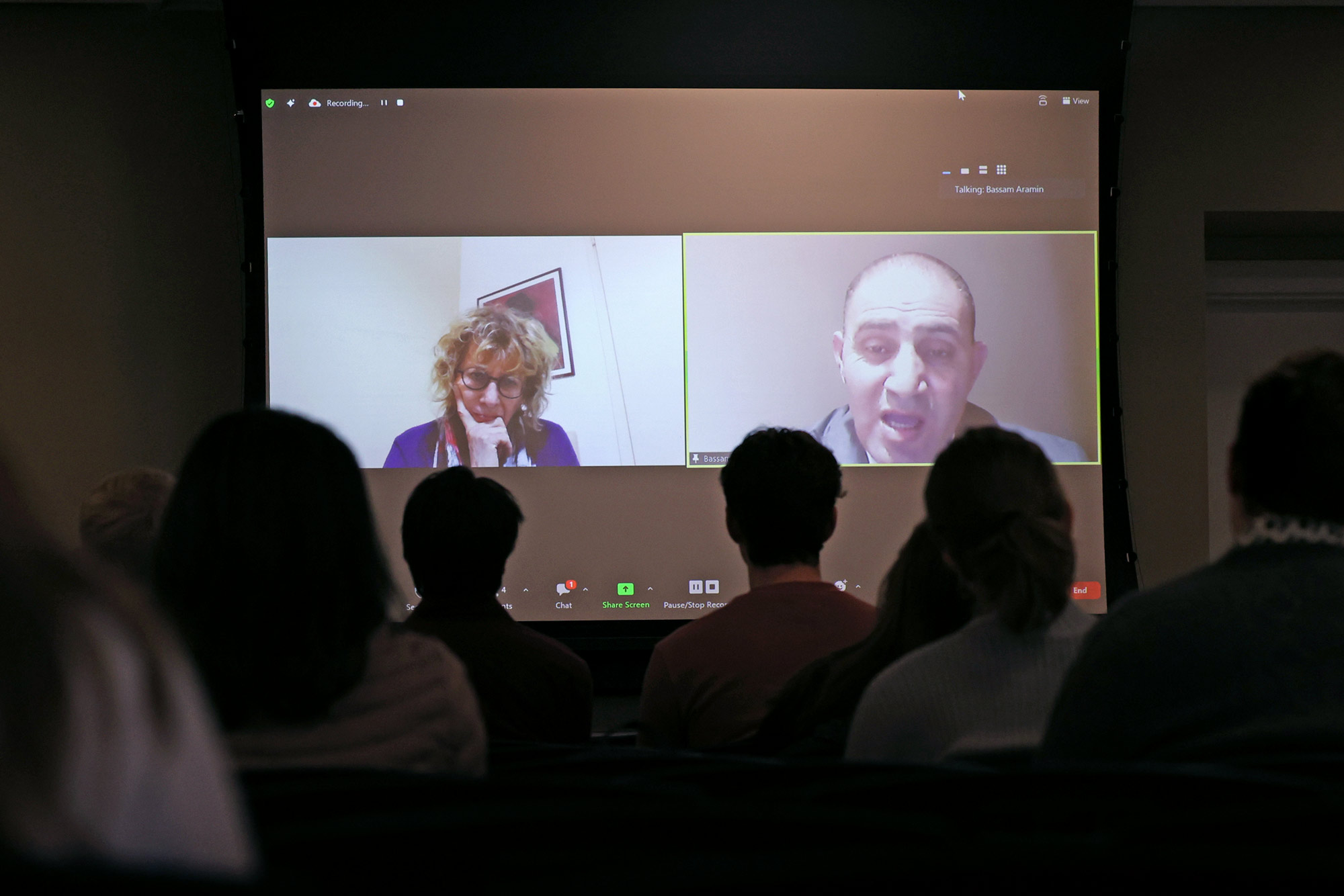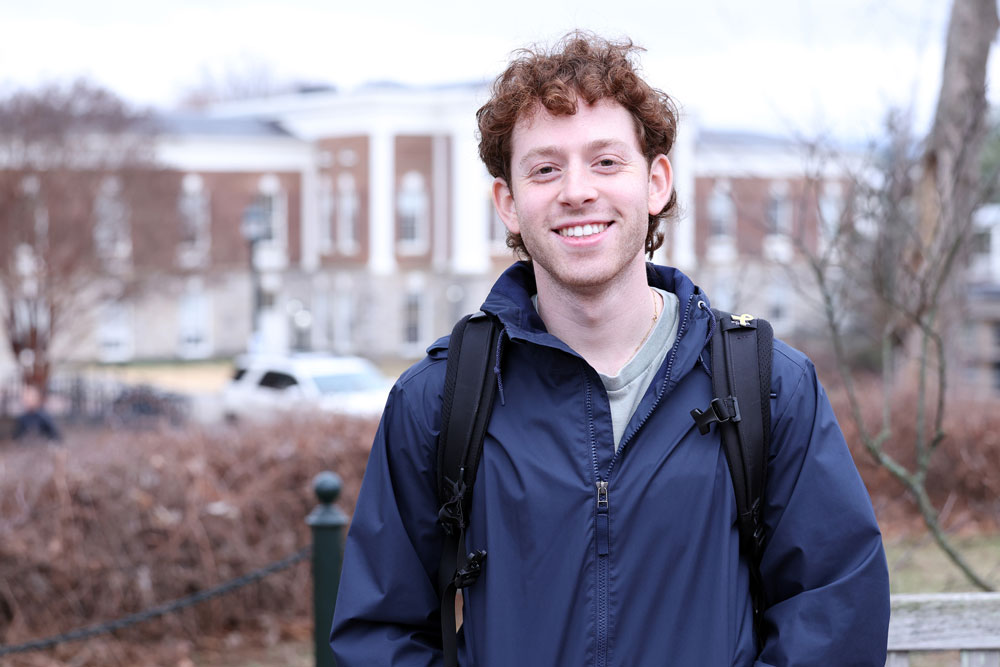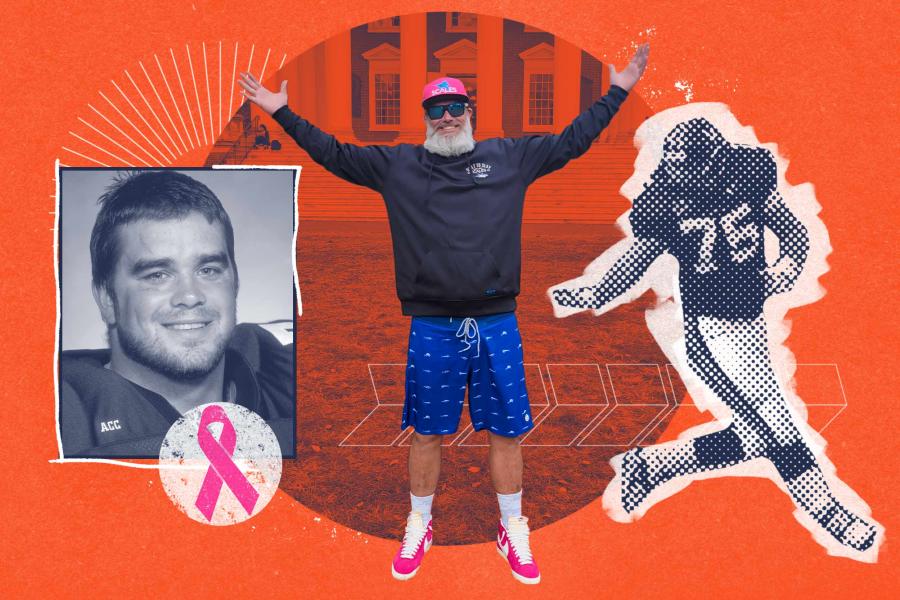“We don’t want to see more blood,” Aramin said. “This is our moral obligation to ask both [sides] to start to see each other as human beings.”
Buksbaum implored the group not to polarize. “Remember,” she said, “there are people suffering on both sides.”
Tuesday’s event, “Why We Choose Dialogue: An Israeli and a Palestinian Share Their Stories of Loss and Wish for Peace,” was part of a slate of academic programming opportunities created in response to a call from UVA leadership.
Last fall, not long after the Oct. 7 attack on Israel, President Jim Ryan and Provost Ian Baucom began working with faculty to leverage UVA’s vast academic, policy, diplomacy and historical expertise to address the war and its effects on students, a topic Ryan referenced in a recent video message.
“Our faculty have created valuable academic programs to help members of the UVA community examine current events through multiple lenses,” Baucom said. “This helps all of us to more fully understand both the immediate and far-reaching effects of this conflict.”
The University’s ongoing and planned efforts include:
- The creation of a task force on religious diversity and belonging, chaired by Christa Acampora, dean of the College and Graduate School of Arts & Sciences.
- A March 25 conference and conversation in the Rotunda Dome Room featuring a foreign policy advisor to former Israeli Prime Minister Shimon Peres and a negotiator for the Palestinian Authority. The event is sponsored by the Miller Center and UVA Global Affairs
- Resource guides and training for students and faculty on bridging divides and creating civil, engaging and respectful conversations.
- More than 40 courses across disciplines this semester on historical, geopolitical, cultural and other topics related to the ongoing conflict in the Middle East.
- Ongoing University guidance about safety planning and policies for student vigils, gatherings, protests and demonstrations.
- Meetings with Jewish, Muslim and Palestinian students to understand their experiences and how the University can support them. Interim dean of students Cedric Rucker has hosted several dinners for these groups at his pavilion.
“Some of our students may disagree with one another on a deeply personal level, but they still treat each other with dignity and respect,” Rucker said. “We are fortunate to be part of a community where students recognize that the right to voice a respectful opinion belongs to all of us.”
Last semester, University leaders scheduled a series of presentations on the early history of the Palestinian-Israeli conflict and Jewish-Muslim relationships on college campuses; a webinar with UVA faculty members, retired foreign service officers and other experts discussing the Israel-Hamas conflict, the war in Ukraine and geopolitics; and a Dome Room debate about free speech at universities.
Additionally, the Karsh Institute of Democracy recently hosted dinner conversations for students to discuss the ongoing conflict.
The Tuesday Parents Circle event resonated with Yager.
“I thought it was great to hear from both of them,” he said. “They shared some interesting perspectives and really important ones, too. I wish more students had a chance to hear because they spoke to really being able to empathize with someone whose beliefs you don’t share.”
Zohar Hadad, a third-year student, said he wanted to understand how two people on opposite sides of the conflict have joined in a push for peace.
“I think it is an important discussion to have,” Hadad said. “Like we discussed at the end, you see so much polarization and division on campus and I don’t believe that is a way forward that will lead to a real solution.
“I just want to support and uplift any movement that wants to share a vision of peace.”




